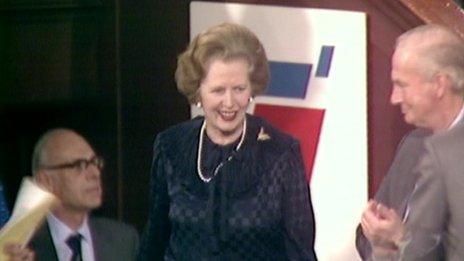Is Scotland on the cusp of a Tory resurgence?
- Published
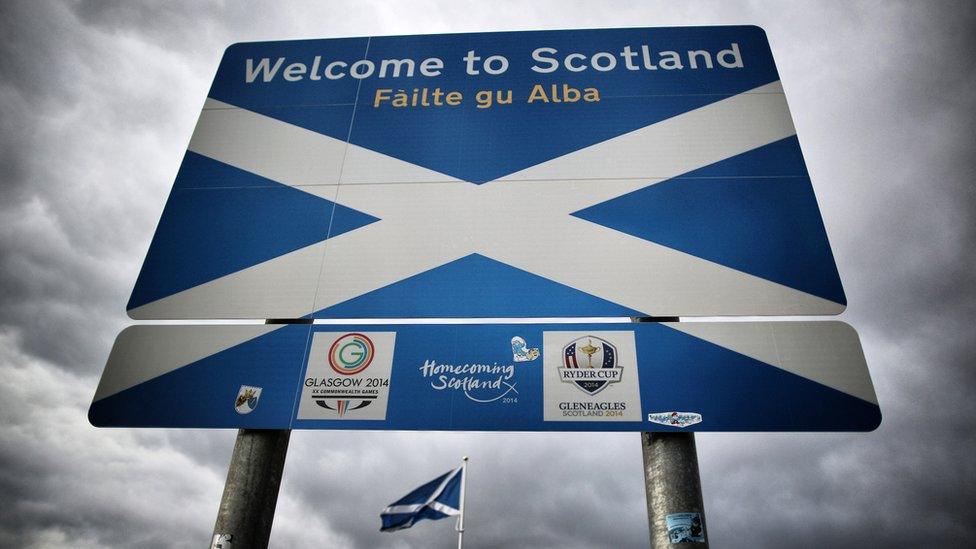
Twenty years ago, amid a Labour landslide across the UK, the Conservatives were annihilated in Scotland. But are they about to make a comeback north of the border?
If the Tories are to demonstrate they are a party of the whole UK they need to take some seats in Scotland. They need to increase their tally from the one solitary MP they managed to get elected in 2015.
If there is to be a comeback it seems most likely to start in southern Scotland. The goal will be to establish an unbroken band of blue along the border with England.
To do that the Conservatives will have to win the constituency of Berwickshire, Roxburgh and Selkirk.
In what had been Lib Dem country for decades, the SNP surprised everyone by winning this seat in 2015.
The Lib Dems were knocked into third place and the Tories were beaten by only 328 votes. So this is their top target seat in Scotland.
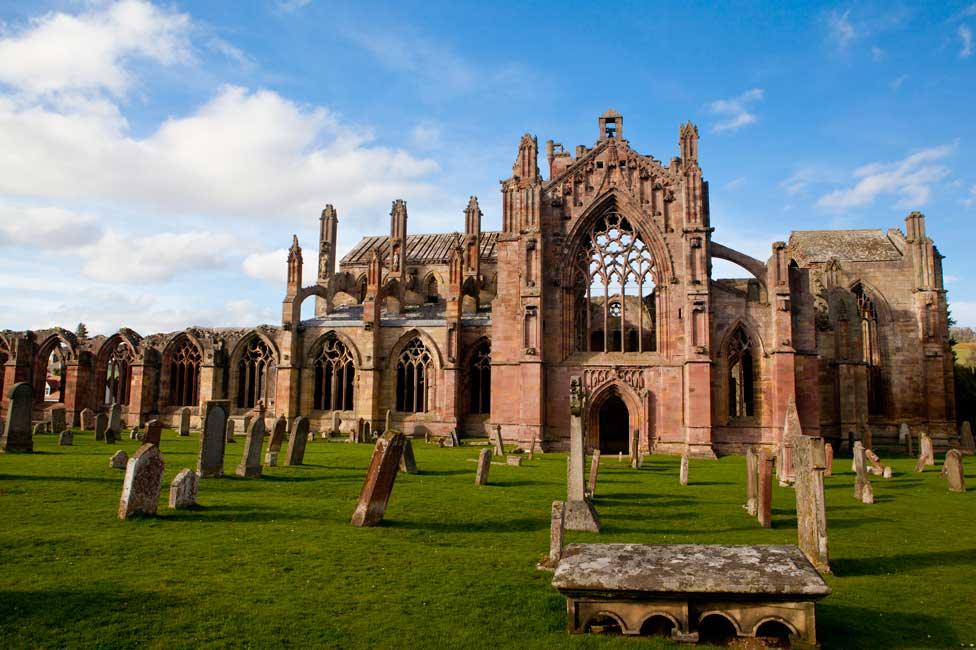
Melrose's medieval abbey is one of Scotland's busiest tourist attractions
The attractive villages of the constituency look like they ought to be Tory territory. If they were in England they would almost certainly be true blue.
The area grew rich on the woollen industry in centuries gone by and although many of the mills now lie empty, the towns and villages retain a certain grandeur.
Selkirk boasts the courthouse in which Sir Walter Scott acted as sheriff. Pretty Melrose features a stunning medieval abbey.
In Kelso - famous for its racecourse - I found the local cricket team practising in the nets on the village green.
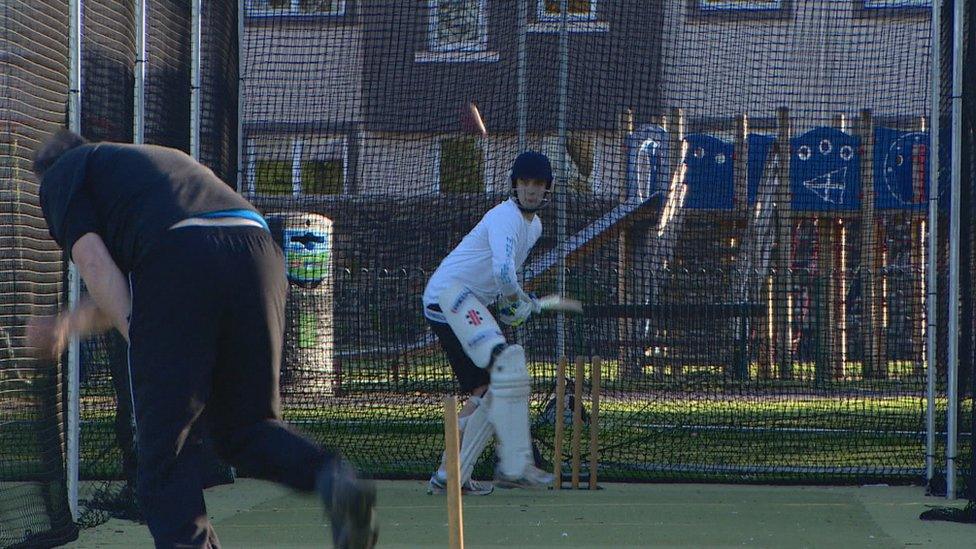
Many of the team said they were probably going to vote Tory. But they seemed much more motivated by trying to unseat the SNP than they were enthused by Tory policies.
"I'll be voting Tory to keep the SNP out," says Dougie Wilson.
"The majority of people down here don't want independence. So it will have to be a tactical vote - in case the Lib Dem and the Tory vote splits and lets the SNP back in again."
Stephen Patterson says he has not yet decided which party he would vote for but was leaning toward the Tories.
"I don't want to leave the UK so I'm not SNP. I'm British.
"I'm Scottish too but I'm British and I don't want an independent Scotland so I certainly won't be voting SNP."
The Tories were completely wiped out in Scotland 20 years ago when they lost 11 seats in the 1997 general election.
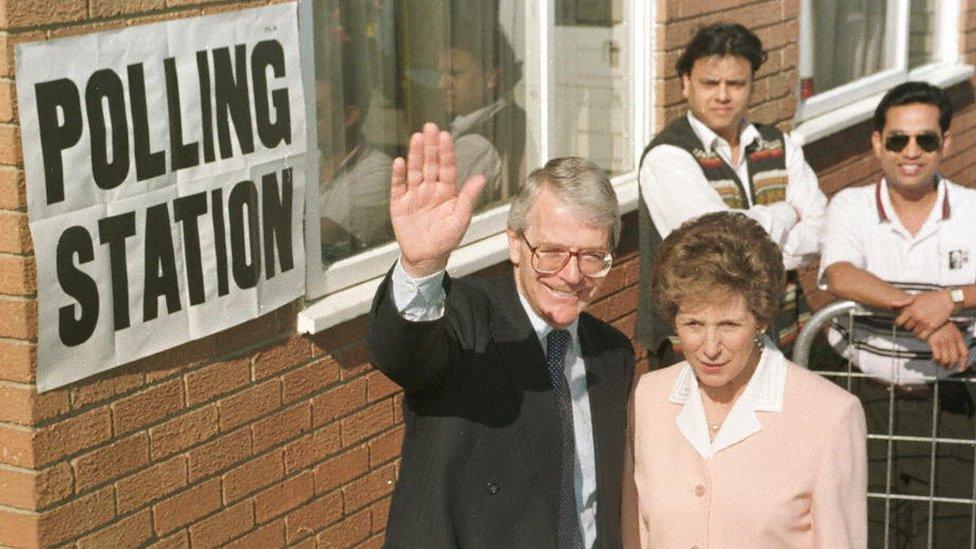
The 1997 wipe-out came after seven years of John Major's government
The electoral map in Scotland was then painted red - Labour held 56 seats.
Ever since then it's been gradually turning SNP yellow. The Scottish nationalists won all but three of Scotland's constituencies in 2015.
And ever since the 2014 independence referendum, Scottish politics has been dominated by the constitutional question.
That's what powered the SNP tsunami two years ago. And it could be what helps the Tories to a comeback.
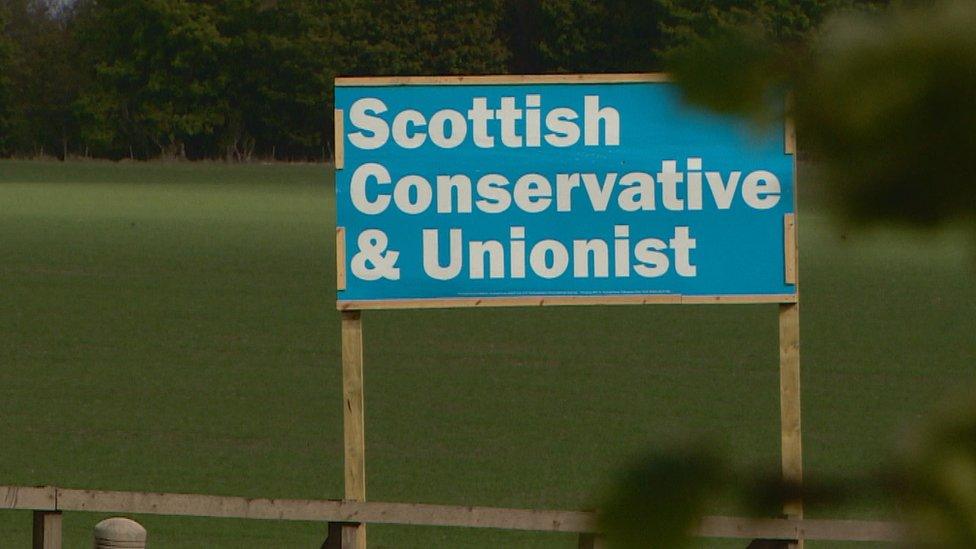
Conservative posters in this campaign are proudly using the traditional name of Conservative and Unionist Party.
It's the "unionist" part of that which seems to be resonating.
By positioning itself as the party that will be the most staunch defender of the United Kingdom it hopes to scoop up votes from unionists who would not previously have considered voting Tory.
Its slogan is: "We said No to independence. We meant it."
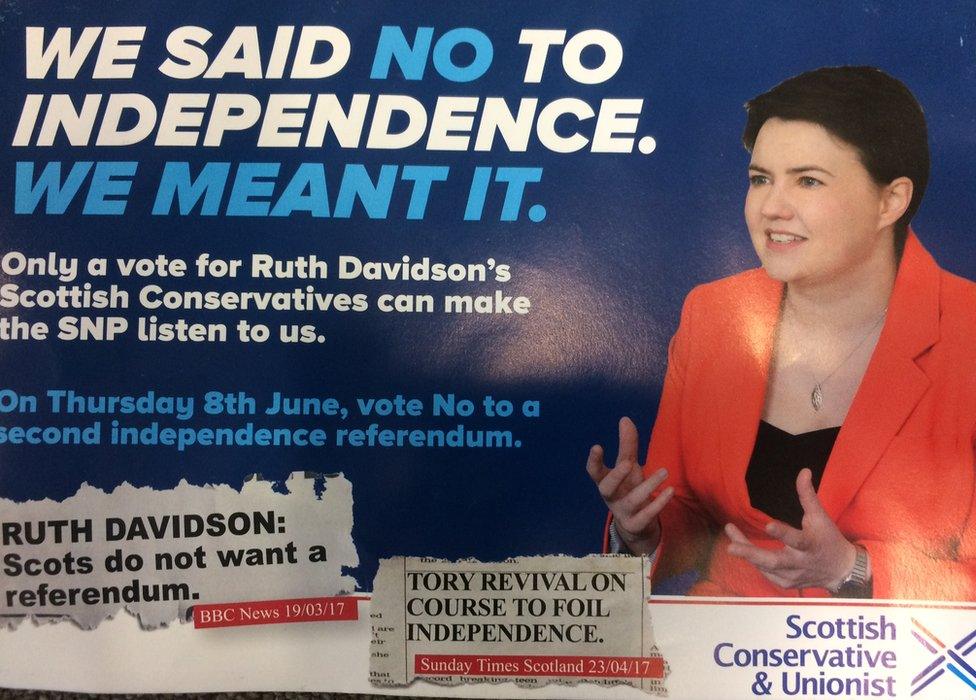
It claims to be the only party that can put an end to SNP leader Nicola Sturgeon's demands for another independence referendum, dubbed "indyref2".
The Tories argue that the SNP spends too much time obsessing about independence. But it is the Conservatives who are making the constitution central to this campaign.
Conservative Party literature has the word "independence" in capital letters. Some SNP leaflets don't even mention independence at all.
The Tories are the party who benefit from the argument being polarised along unionist/nationalist lines.
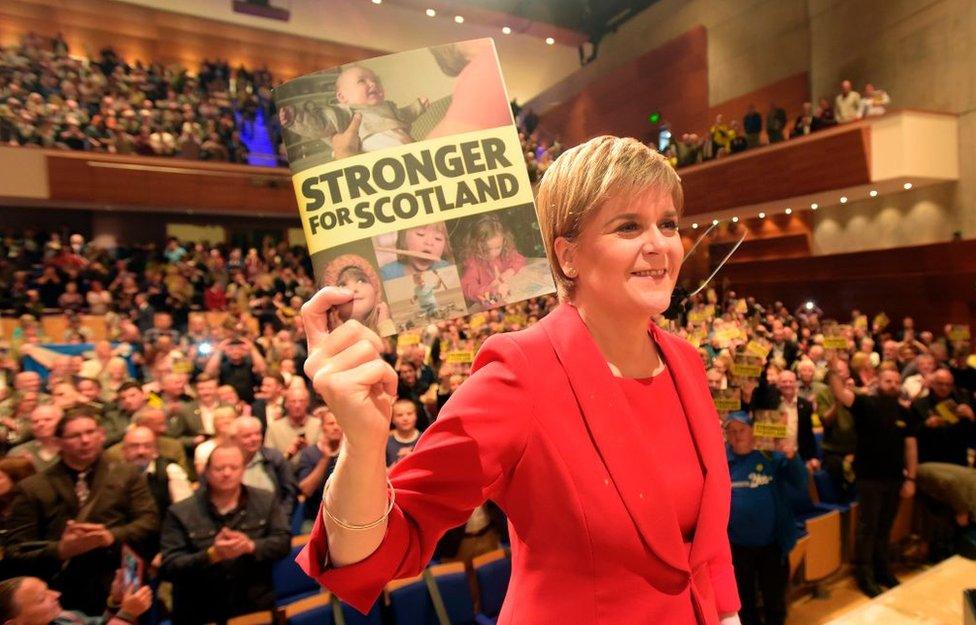
Nicola Sturgeon has said opposition to "indyref2" will be "democratically unsustainable" if the SNP wins a majority of Scottish seats
The SNP would rather talk about social policies, where it believes it is more in tune with Scottish public opinion.
Labour and the Lib Dems find themselves squeezed out of the constitutional argument since the Tories have cast themselves as the most staunch defenders of the UK.
Scotland has always had lot of small "c" conservatives. They just didn't vote Tory.
For decades, the party had been branded by its opponents as being not just antithetical to Scottish values but actively hostile to Scotland.
Margaret Thatcher was demonised in Scotland, even for many years after she had left the UK political stage.
Margaret Thatcher's legacy in Scotland, 25 years after her downfall
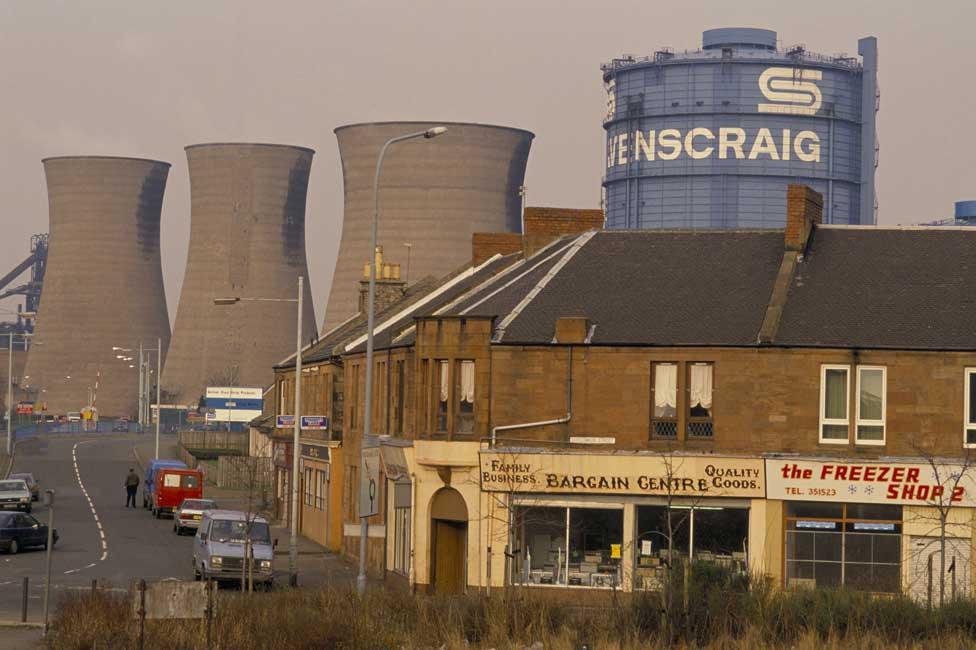
The Conservatives were widely blamed for the closure of the Ravenscraig steel mill in 1992
The 1997 wipe-out came after seven years of John Major's government.
It was under him that the huge Ravenscraig steel mill, near Motherwell, finally closed in 1992.
However, its demise was seen by critics as the ultimate expression of the destruction they believed Mrs Thatcher had brought to Scotland's heavy industry over the preceding decade.
Her programme of widespread privatisation and economic liberalism affected Scotland greatly. It was a part of the UK where traditional manufacturing industries were still dominant.
The 1987 Proclaimers hit Letter From America famously compared the devastation wrought on the industrial base of Scottish towns such as Linwood, Bathgate and Methil to the Highland Clearances of the century before.
The introduction of the poll tax in Scotland a year before England and Wales was also seen by some as a demonstration that the Conservatives didn't care about Scotland.
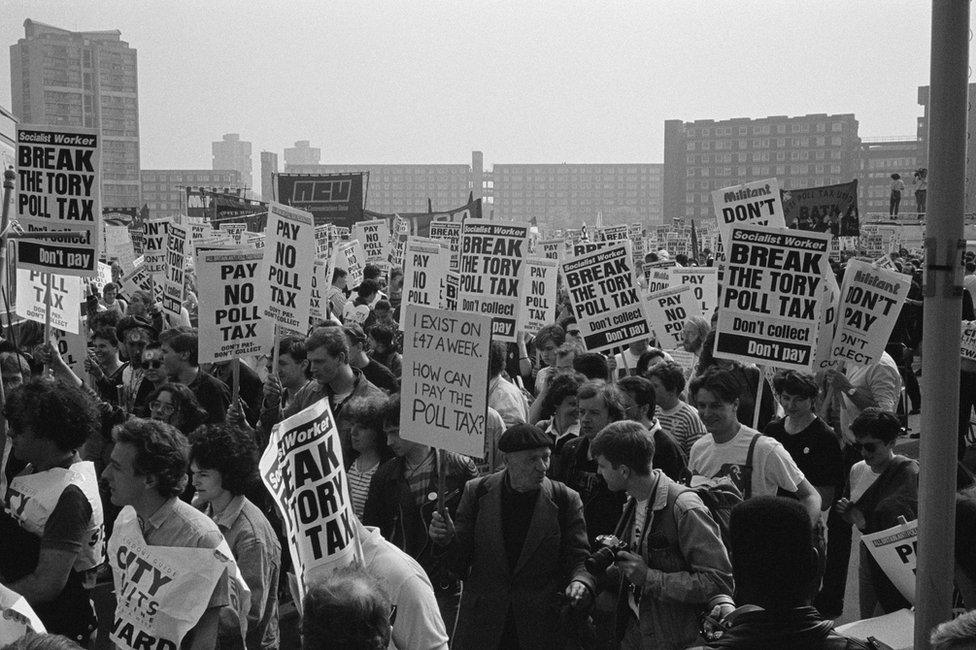
There were violent protests against introduction of the poll tax
While Mrs Thatcher was a divisive politician throughout the UK, in Scotland there became fewer and fewer people willing to fall on her side of the divide. And yet those memories seem to be finally fading.
Tories are now canvassing in places where they would have feared to tread a few years ago.
In the recent local elections they won council seats in unlikely places such as Shettleston in the east end of Glasgow and Ferguslie Park in Paisley.
But it is worth pointing out that the system of proportional representation used for the council elections means they are unlikely to be an accurate predictor of general election results.
The Tories' exuberant Scottish leader, Ruth Davidson, has been personally credited with much of the "detoxification" of the party in Scotland.
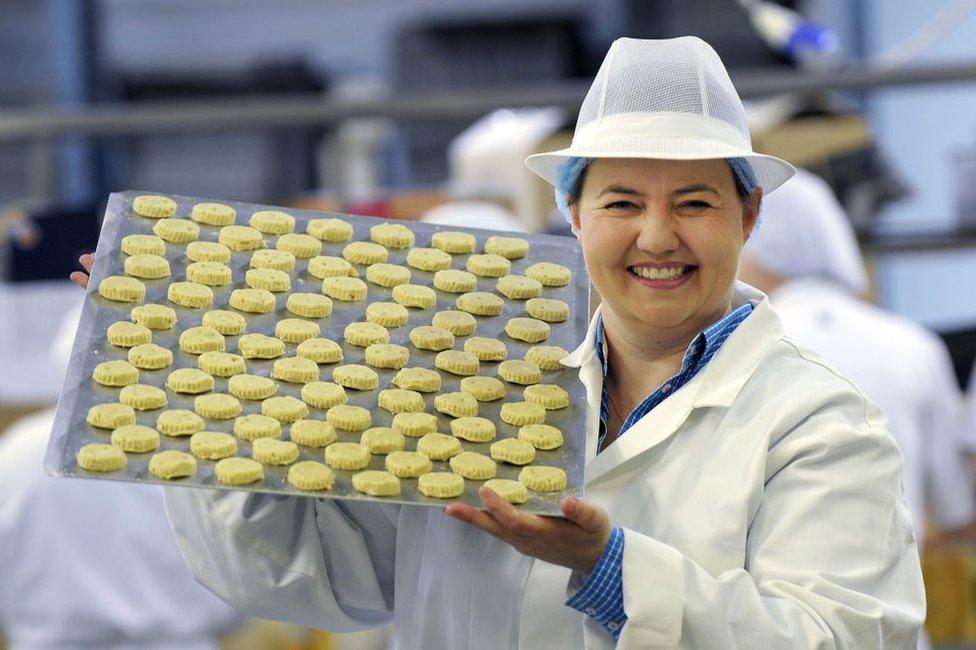
Ruth Davidson is leading a Tory fightback in Scotland
She doesn't look like the stereotype of a Tory.
She's working class, gay, with an obvious sense of humour and a talent for entertaining photo calls. For many voters, she passes the important test of looking like someone you'd like to share a drink with.
Ruth Davidson: The 'tough old bird' of Tory Scotland
She said herself it was easier coming out as gay in Scotland than it was to admit to being a Tory. But she hopes that's changed now. Tories knocking on doors say they no longer feel they have to apologise for being Conservative.
It does Ruth Davidson no harm that she has stood up to her UK party on some issues. She is credited with persuading Theresa May to keep the commitment to spend 0.7% of UK GDP on foreign aid.
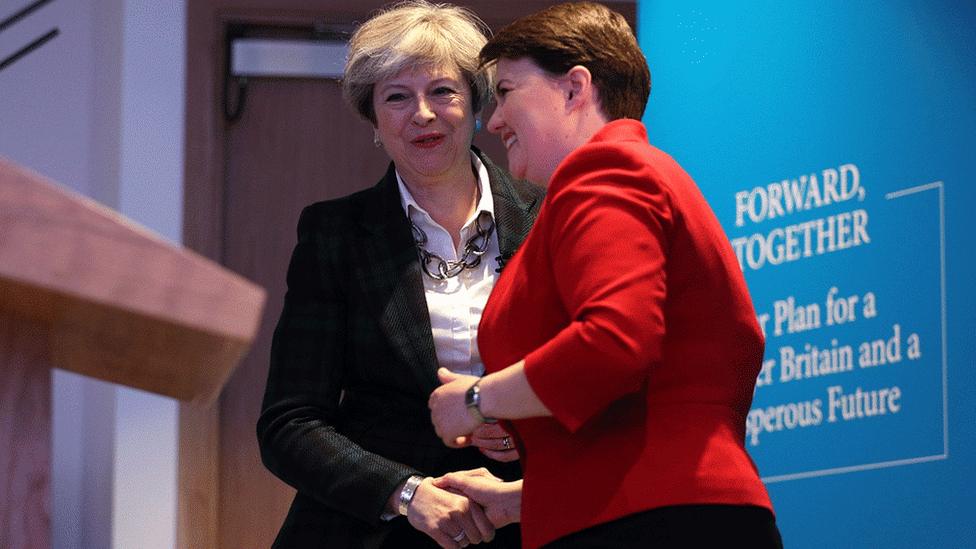
Theresa May joined Ruth Davidson for the Scottish Conservative party's manifesto launch
But she sometimes looks uncomfortable when forced to defend UK party policy she is not responsible for.
The Tories have been under sustained attack in Scotland over the so-called "rape clause" - the UK welfare policy that limits tax credits to two children unless a subsequent child was conceived as the result of rape, and requires mothers to declare that rape.
Now the Scottish Conservative party is announcing policies which appear specifically devised to try to persuade people it is not the nasty party. It has just done a policy U-turn that means it is now in favour of free prescriptions in Scotland.
That puts it at odds with the UK party policy on prescriptions. But that's obviously a minor consideration compared to the potential gains from persuading former Labour and Lib Dem voters to consider switching.
Brexit is a bit tricky for the Conservatives in a country which voted 62% to remain in the EU.
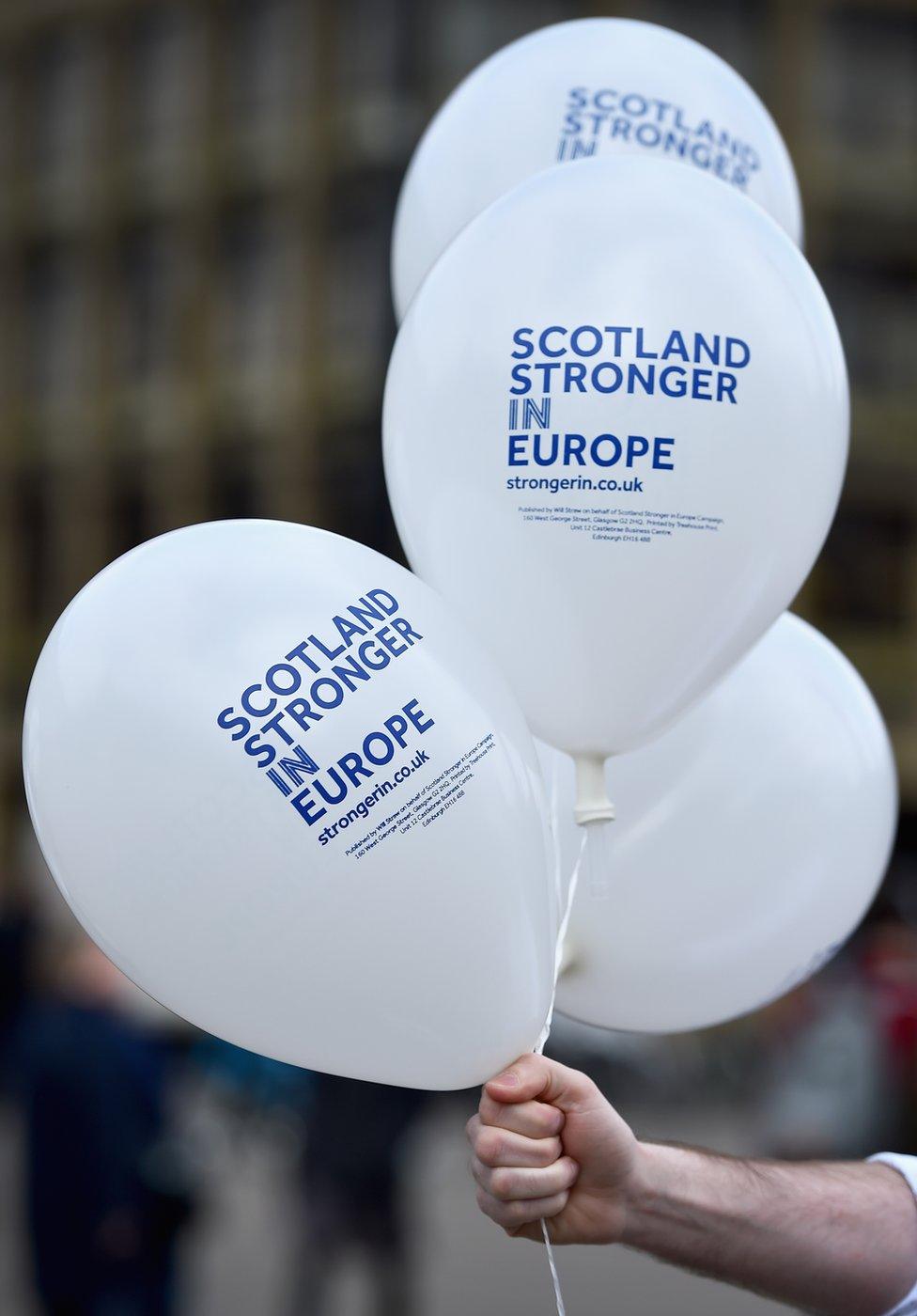
Theresa May's plans for leaving the EU don't necessarily sit well with Scottish voters.
Ruth Davidson herself was a passionate Remainer who has now had to change her tune. But it appears Scottish independence currently looms much larger in voters' minds than Brexit.
While Tories in the rest of the UK worry that reports they are on course for a landslide victory might depress their vote or galvanise their opponents, in Scotland they hope that reports of good polling numbers will persuade Scottish voters that a Tory vote is no longer weird or unusual.
"You are among friends, you have plenty of company if you choose to vote Conservative this time" is the message they hope voters are hearing.
In seats where the Tories have the best chance of defeating the SNP incumbent, they also hope to persuade people who want to remain part of the UK - like the cricketers I met in Kelso - to use their vote tactically to support the Conservatives.
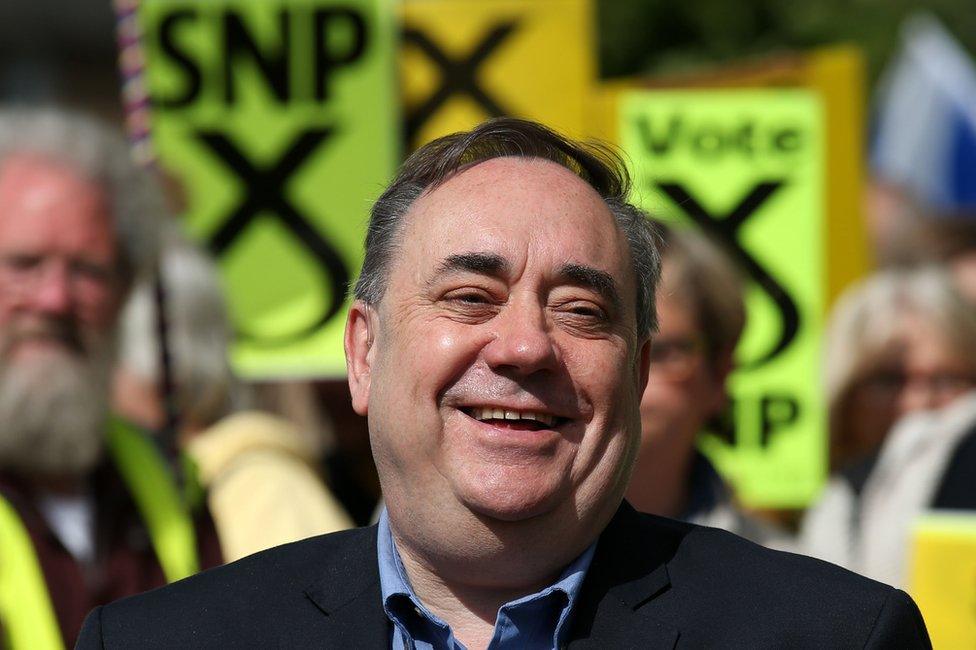
The Conservatives are targeting the seats of SNP "big beasts", including that of the party's former leader, Alex Salmond
So what might a Tory revival look like in the end? The party won't make a public prediction about how many seats it might win. Privately, Tories are hoping to make it into double figures. Ten or 12 MPs would be a very good result for them.
If they could topple an SNP "big beast", they'd be delighted. They are targeting the seats of both Angus Robertson, the SNP Westminster leader, and Alex Salmond, the former SNP party leader, hoping to create their own "Portillo moment".
If the Tories do take a handful of seats they will claim victory, even if they hold less than 10% of Scottish constituencies.
The SNP will struggle to keep hold of its record tally of 56 out of 59 seats. And if they lose even a few their opponents will say their support is falling, and therefore the case for another referendum has been weakened.
Ruth Davidson likes to say that we have now passed "peak Nat". She says support for the SNP is falling and she hopes to be the principal beneficiary.
- Published21 May 2017
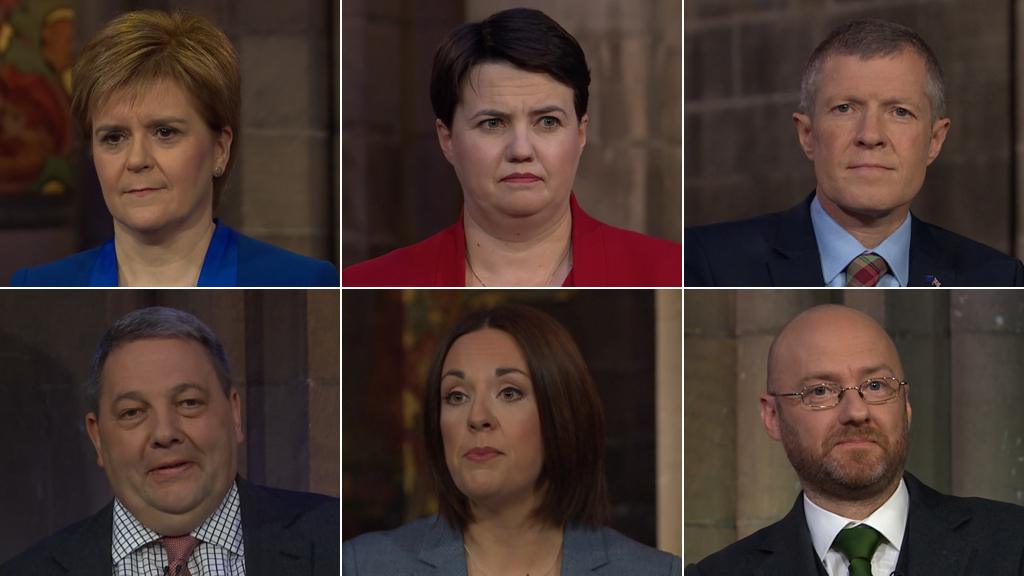
- Published19 May 2017
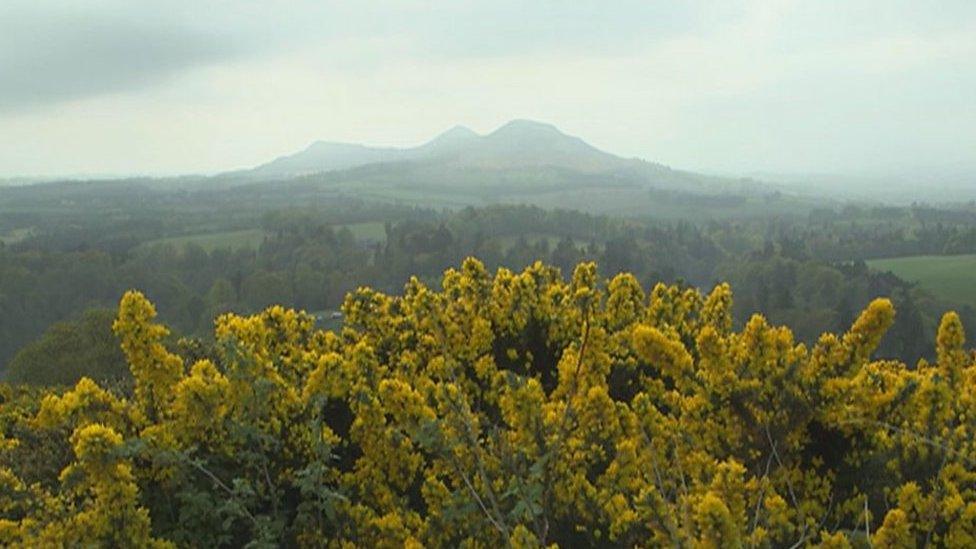
- Published19 May 2017
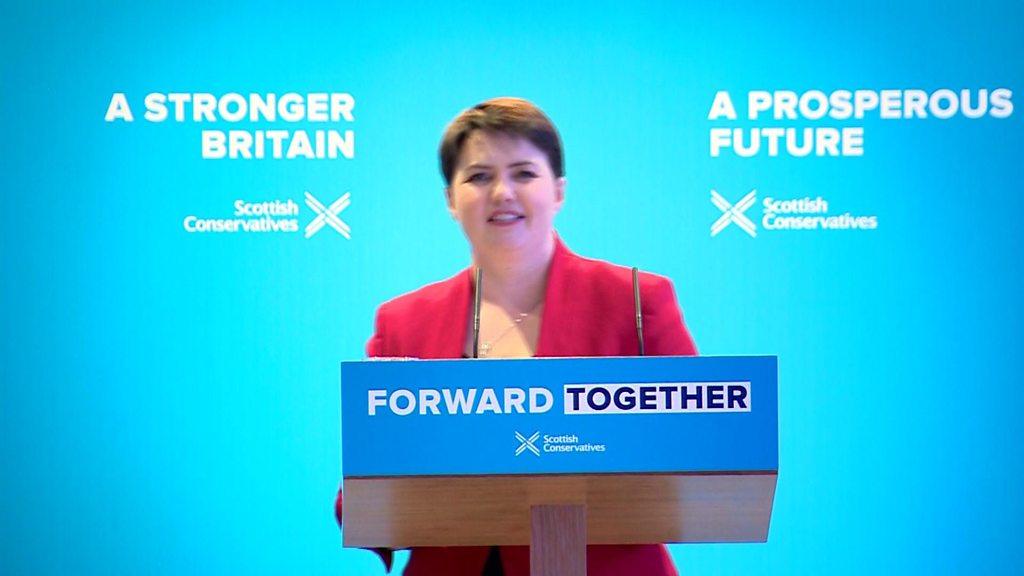
- Published19 May 2017
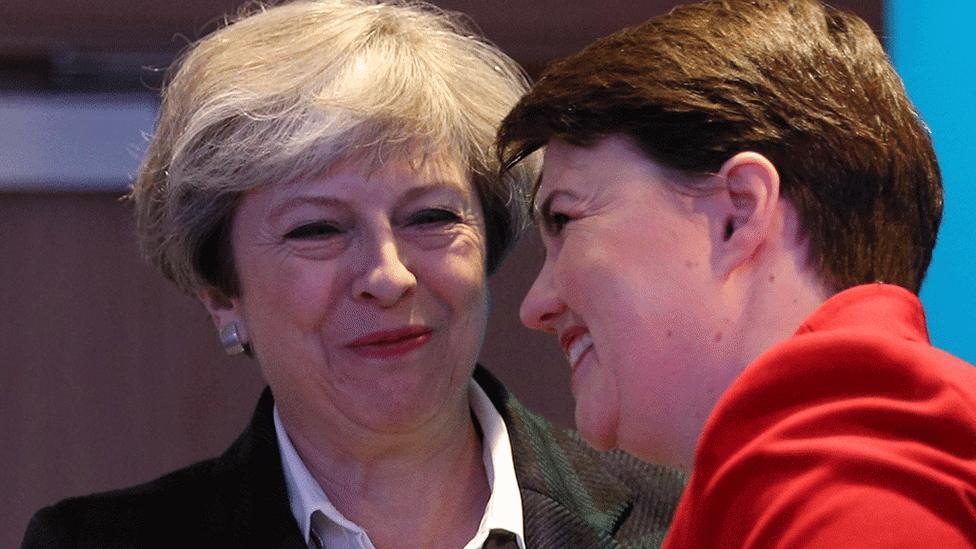
- Published20 March 2017
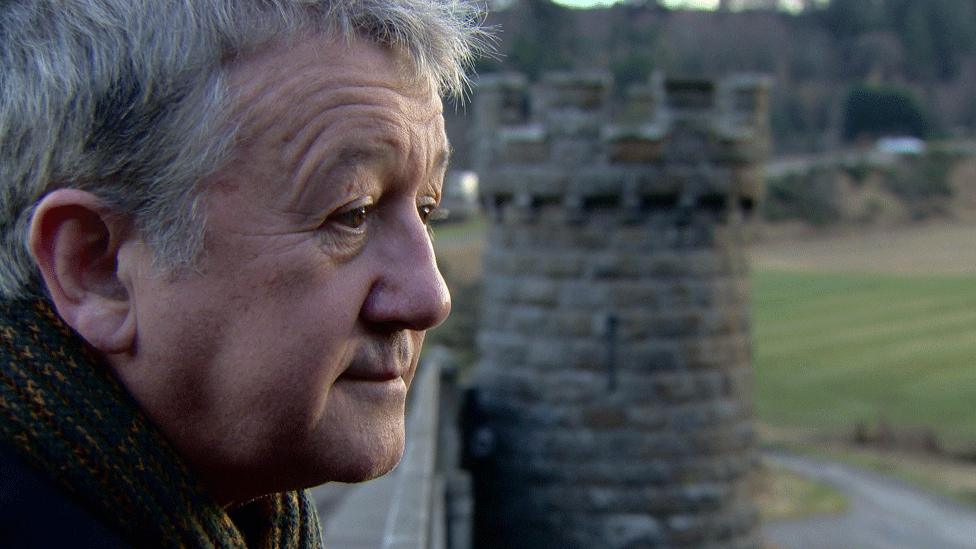
- Published15 May 2017
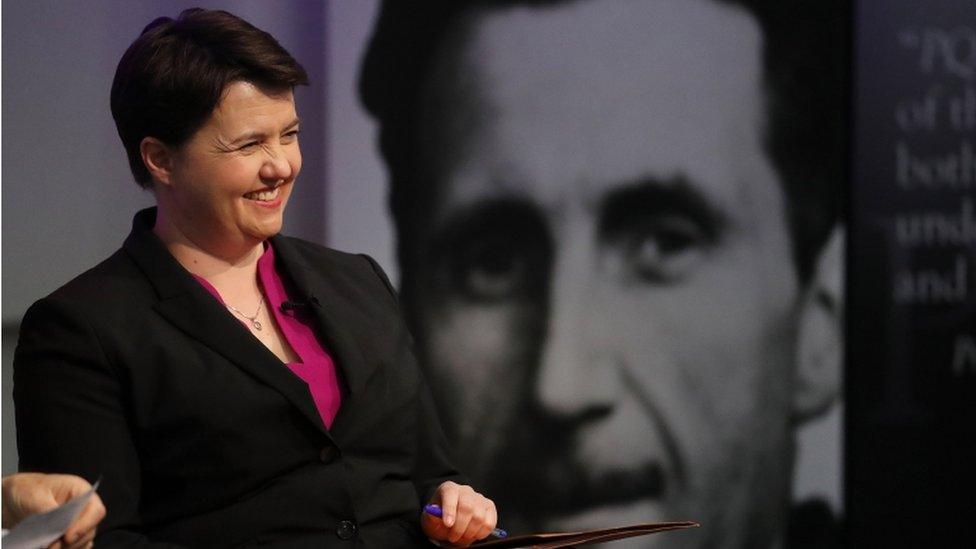
- Published29 April 2017
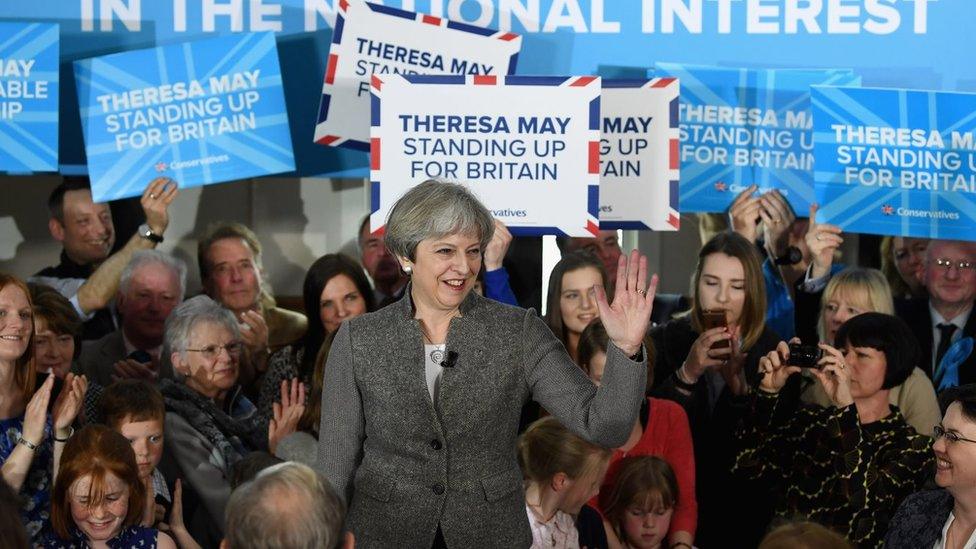
- Published5 October 2016
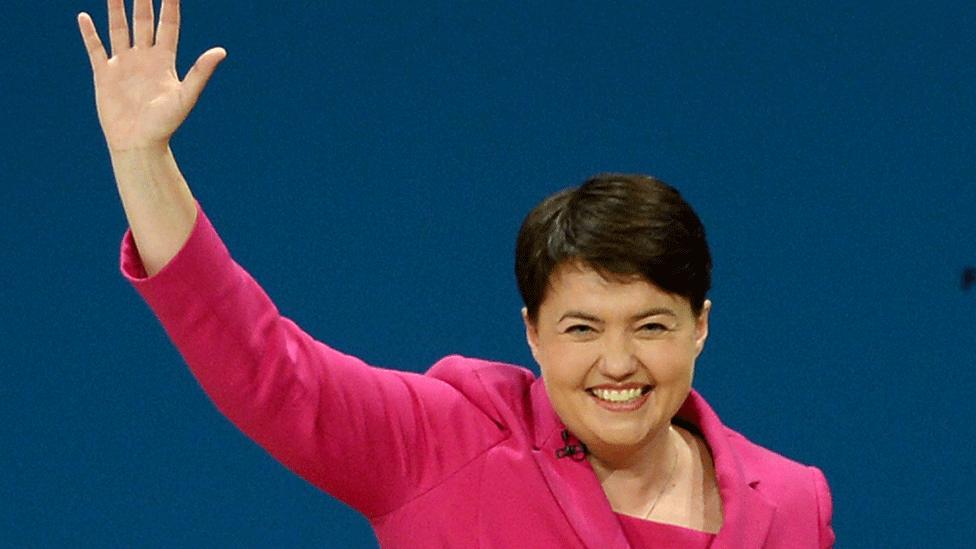
- Published5 October 2016
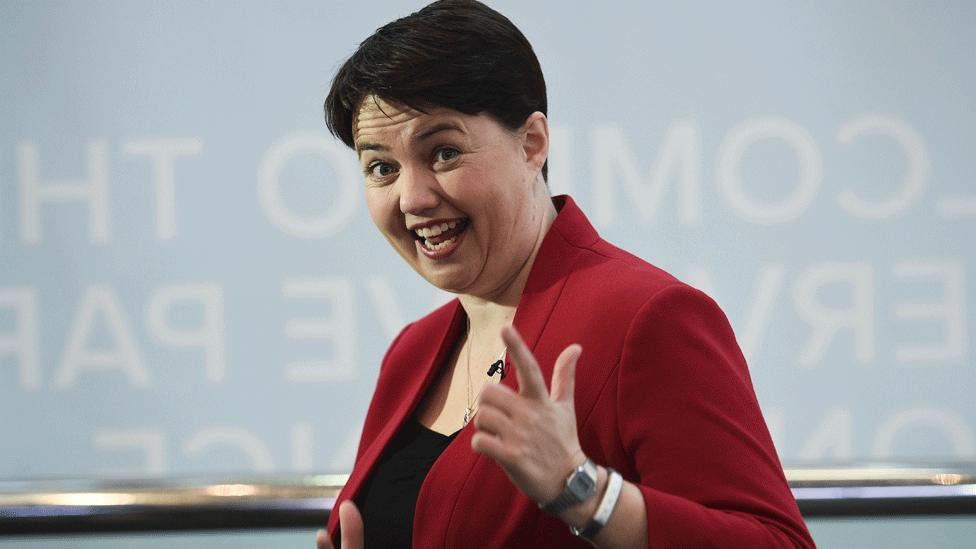
- Published13 January 2016
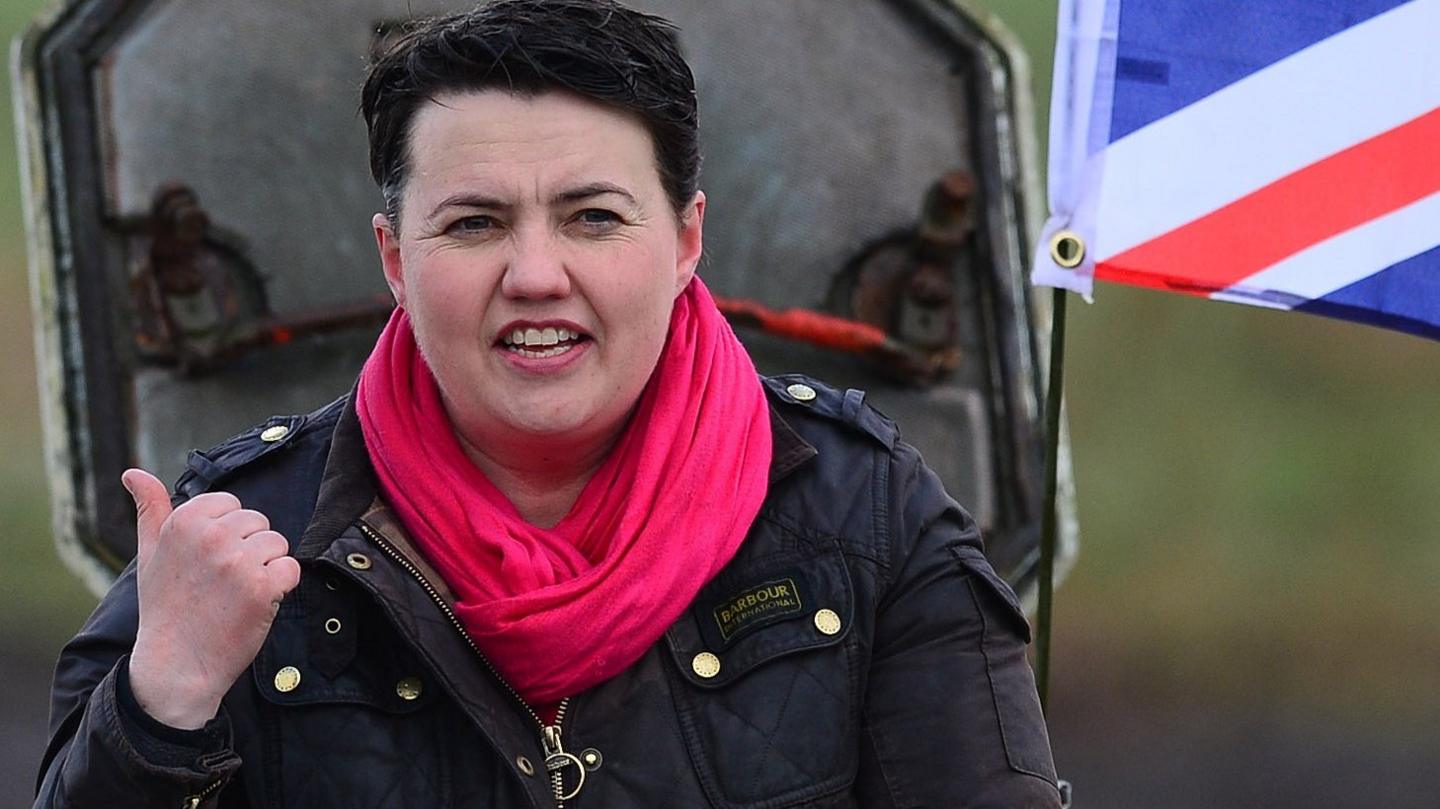
- Published28 November 2015
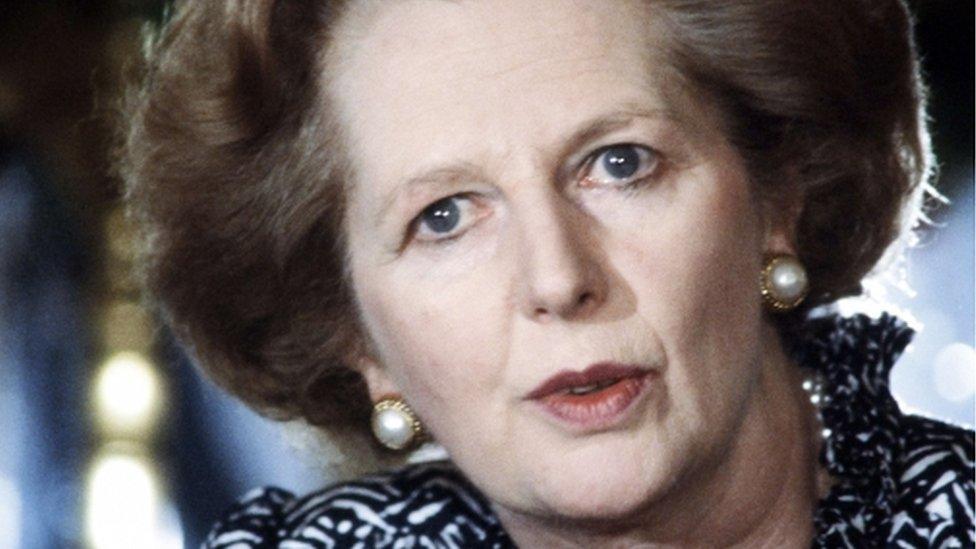
- Published8 April 2013
